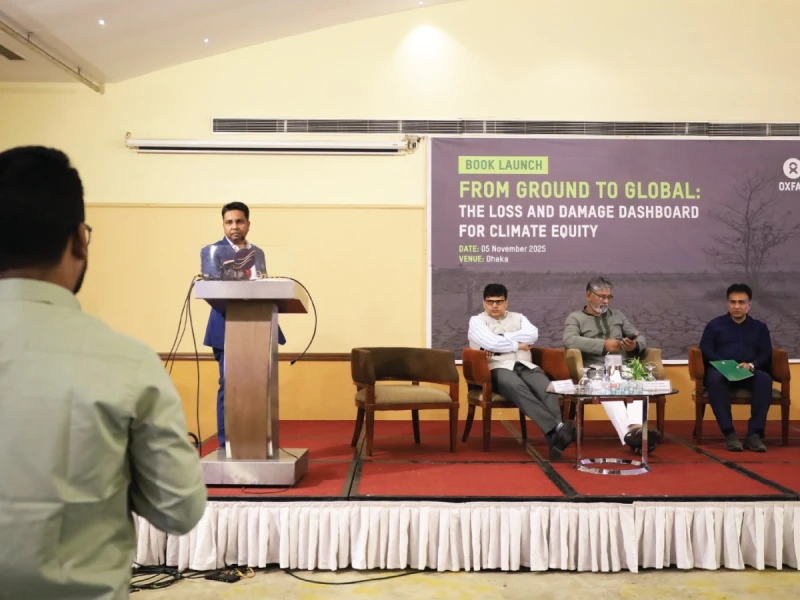Climate-induced losses worth BDT 1.35 billion (USD 11 million) were recorded across 19 districts in Bangladesh through Oxfam’s new Loss and Damage Dashboard, with each affected person suffering an average loss of BDT 117,000 (USD 954), according to data released on Wednesday.
Despite contributing minimally to global emissions, countries like Bangladesh—ranked among the world’s top ten most climate-impacted nations—suffer escalating climate disasters. According to the World Bank, Bangladesh loses around USD 3 billion annually, or 1–2% of its GDP, to climate-related events. Unofficial estimates suggest the figure exceeds USD 5 billion when slow-onset impacts such as salinity intrusion and sea-level rise are included.
Oxfam has launched an interactive digital platform titled Loss and Damage Dashboard to help communities document and visualize the real-time impact of climate-related losses across Bangladesh.
To address this data gap, the Loss and Damage Dashboard uses a participatory, bottom-up approach that combines citizen science, satellite data, and AI-driven validation. It enables communities to record both economic and non-economic losses, creating a credible evidence base to guide policy, financing, and accountability.
Swedish Ambassador to Bangladesh Nicolas Weeks, who attended the launch, said, “The Loss and Damage Dashboard shows how local knowledge, backed by scientific evidence, can drive global change. When community voices inform policy, we build stronger climate justice and ensure funding reaches those who need it most.”
Oxfam in Bangladesh Country Director Ashish Damle said the initiative “translates pain into policy,” adding, “By turning community stories into scientific evidence, Bangladesh is setting a global example of climate leadership. True justice begins with credible data that can influence finance decisions and hold polluters accountable.”
The report also identified gendered dimensions of climate loss, noting that while men reported higher total losses, women faced disproportionate health and livelihood impacts—particularly in nutrition and waterborne diseases. Cox’s Bazar, Kurigram, Satkhira, and Sunamganj were identified as the most affected districts.
The report warns that worsening climate loss and damage are deepening global inequality, as the richest 10% of populations are responsible for over half of historical emissions, while Least Developed Countries like Bangladesh bear the brunt.
Dr. Mohammad Emran Hasan of Oxfam presented the report at the event, moderated by Md Sariful Islam, which brought together leading climate experts, academics, private sector leaders, and youth activists to discuss how community-driven data can shape global climate justice and accountability.


 Prev Post :
Prev Post :
-1762338953.webp)